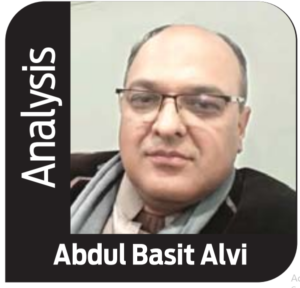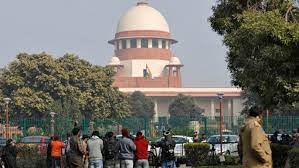
India, despite its self-proclaimed status as a secular state, falls short in providing equal, fair, and prompt justice to all its citizens. The claim of being the largest democracy is clouded by governance led by Hindu extremists, posing a serious threat to religious minorities, particularly the Indian Muslim minority and the people of Kashmir. The Modi-led government stands accused of brutally violating the human rights of these minorities, with the pursuit of the Hindutva ideology exacerbating tensions.Since the rise of the Modi-led BJP government, there has been a notable increase in communal and religious tensions, resulting in frequent human rights violations. A stark example is the approval, on October 18, 2022, of the release of 11 men sentenced to life in prison for heinous crimes during the 2002 Gujarat riots. These riots claimed nearly 2,000 lives, mostly Muslims, in religious violence that occurred when Modi served as the chief minister of the state. During his visit to India on October 19, 2022, UN Chief Antonio Guterres expressed deep concerns regarding the continuous human rights violations in the country.
India is currently embracing the ideology of Hindutva, a form of Hindu nationalism that originated in 1923. The term was formulated by Vinayak Damodar Savarkar and is endorsed by various organizations collectively known as the Sangh Parivar, including the Rashtriya Swayamsevak Sangh (RSS), the Vishva Hindu Parishad (VHP), and the Bharatiya Janata Party (BJP). Described as a variant of right-wing extremism, the Hindutva movement has been criticized for its adherence to a concept of homogenized majority and cultural hegemony. Modi, a follower of the Hindutva ideology, emphasizes the supremacy of India and Hindus. However, this ideological stance has raised concerns about human rights issues, particularly regarding minorities. The government appears determined to assert its influence in the region and neighboring countries under the banner of the Hindutva ideology.
The region of Jammu and Kashmir bears the scars of a prolonged history of conflict, with the specter of Indian aggression casting a persistent shadow over its historical narrative. The intricate and contentious relationship between India and the people of Jammu and Kashmir has left indelible imprints on the region’s political landscape, social fabric, and international standing.
The roots of Indian aggression in Jammu and Kashmir trace back to the tumultuous events surrounding the partition of India in 1947. As the subcontinent gained independence from British colonial rule, princely states were given the choice to accede to either India or Pakistan based on their geographical and demographic realities. The princely state of Jammu and Kashmir, led by Maharaja Hari Singh, found itself predominantly Muslim but governed by a Hindu monarch. The decision to accede to either India or Pakistan was fraught with uncertainty and tension. In the midst of this uncertainty, Maharaja Hari Singh signed the Instrument of Accession with India in October 1947, seeking military assistance against tribal militias and forces from Pakistan.
However, India’s intervention faced resistance from local Kashmiri leaders advocating for a more democratic and inclusive approach to determine the region’s future. The conflict escalated into the first Indo-Pakistani war over Kashmir, resulting in the establishment of a de facto border known as the Line of Control (LoC), dividing the region between Indian-administered Occupied Jammu and Kashmir and Pakistan-administered Azad Jammu and Kashmir. This division spawned a protracted territorial and political dispute that has endured for decades.
Indian aggression in Jammu and Kashmir has been marred by human rights concerns, encompassing allegations of extrajudicial killings, disappearances, arbitrary detentions, and the excessive use of force by Indian security forces. The Armed Forces Special Powers Act (AFSPA) grants expansive powers to Indian security forces in the region, often criticized for fostering impunity and impeding accountability. These allegations have garnered international attention and censure from human rights organizations, exerting pressure on India to address these concerns and safeguard the well-being of civilians in the conflict zone.
The issue of Indian aggression in Jammu and Kashmir not only strained relations between India and Pakistan but also exerted a far-reaching impact on the broader geopolitical landscape of South Asia. The two nations have engaged in multiple wars and skirmishes over the region, with the specter of armed conflict perennially looming. International efforts, including those by the United Nations, to mediate and find a peaceful resolution to the Kashmir conflict have encountered challenges, particularly due to India’s steadfast stance. The matter continues to destabilize the region and holds broader implications for global security.
The history of Indian aggression in Jammu and Kashmir narrates a complex tale of geopolitics, conflicting aspirations, and unresolved disputes. The region’s historical trajectory is marked by a persistent struggle for self-determination, human rights concerns, and the enduring repercussions of pivotal decisions. As the international community observes and calls for peaceful resolutions, it is evident that the issue of Jammu and Kashmir remains a pivotal factor shaping the political and social dynamics of the region.
On August 5, 2019, India executed a highly contentious decision that reverberated not only within the nation but also across the international community. Under the leadership of Prime Minister Narendra Modi, the Indian government declared the abrogation of Article 370 of the Indian Constitution, thereby rescinding the special autonomous status granted to Jammu and Kashmir. This momentous move marked a pivotal juncture in the political trajectory of the region, triggering extensive debates and discussions regarding its implications for the residents of Jammu and Kashmir, India’s federal structure, and its global relationships.
Article 370, a constitutional provision, bestowed special status upon the state of Jammu and Kashmir. This unique status granted the state the authority to have its own constitution, autonomy over internal matters (excluding defense, foreign affairs, and communications), and a distinct set of laws governing various facets of the state’s affairs. The intention behind this arrangement was to honor the cultural, religious, and political diversity of the region. The abrogation of Article 370 was purportedly framed by the Modi-led Indian government as a step towards integrating Jammu and Kashmir into India. However, the decision encountered opposition both within India and from the global community, with critics viewing it as a violation of the distinctive identity of Jammu and Kashmir and a peril to its demographic and cultural fabric.
Following the abrogation, the region underwent substantial changes. The state was restructured into two union territories – Jammu and Kashmir, and Ladakh. The removal of Article 370 resulted in the forfeiture of the special autonomy that had defined the region for decades. While the Indian government pledged economic development, investment, and opportunities, apprehensions arose due to a communication blackout, movement restrictions, and allegations of human rights violations in the aftermath of the decision. These concerns triggered discussions on the delicate balance between security measures and fundamental rights.
The abrogation of Article 370 also had far-reaching geopolitical consequences, leading to heightened tensions between India and Pakistan. Pakistan condemned the move, exacerbating the already strained relations between the two nuclear-armed neighbors and resulting in increased military activities along the Line of Control.
Post the abrogation of Article 370, India initiated a process that people perceive as an attempt to alter the demographic majority. Drawing inspiration from the models of Palestine and strategies employed by Israel, India pursued actions to suppress the voice of Kashmiris through forceful means. Despite these efforts, India has been unsuccessful in silencing the voices of the Kashmiri people. Continuous reports of human rights violations and media restrictions underscore the ongoing challenges in the region, raising concerns about the adherence to basic rights for the people of Kashmir.
In a recent development, the Supreme Court of India has affirmed the controversial decision made by the Hindu extremist Modi government on August 5, 2019, to abrogate Article 370. Simultaneously, the court dismissed petitions advocating for the restoration of the special status of Occupied Kashmir. Chief Justice DY Chandra Chadha, in delivering the verdict, asserted that, following India’s recognition, Jammu and Kashmir lacks internal autonomy, and the application of Article 370 was temporary. According to Articles 1 and 370 of the Constitution, occupied Jammu and Kashmir is an integral part of India. The judgment clarified that the Jammu and Kashmir Assembly did not aim to create a separate entity, and Article 370 does not freeze the integration of Jammu and Kashmir. The court upheld the Modi Government’s decision of August 5, 2019, stating that the President possesses the authority to abrogate any constitutional provision.
Supreme Court of India rejected petitions seeking the reinstatement of the special status of Occupied Jammu and Kashmir. Additionally, the court mandated the holding of elections for the Occupied Kashmir Assembly by September 30, 2024. It is noteworthy that the Supreme Court had reserved its decision on September 5 regarding petitions challenging the revocation of Article 370, which granted special status to Occupied Kashmir, by the Modi government. These petitions called for the restoration of Article 370 and the statehood of Occupied Jammu and Kashmir, while also contesting the division of the region into Jammu and Kashmir and Ladakh. The Chief Justice of India, DY Chandrachud, led a 5-member bench that heard the case on a daily basis, spanning 16 days.
The recent verdict by the Indian Supreme Court serves as a wakeup call for those who champion the cause of an Independent Kashmir. The Government of India, along with its Supreme Court, is being accused of openly disregarding human rights and steadfastly adhering to the principles of Hindutva ideology. The feasibility of establishing an Independent Kashmir is questionable in the face of India, viewed as an adversary that considers Kashmir an integral part. India, from a security perspective, is unlikely to allow Kashmir to function independently. The alignment of religion, culture, language, and other characteristics with Pakistan makes coexistence with Pakistan the most viable solution. The historical treatment of India towards its neighboring countries and minority groups within its borders is evident. Advocates of an Independent Kashmir need to acknowledge and understand this reality.
Readers, it is essential to emphasize that the courts and judicial systems in civilized societies are expected to uphold human rights and factual accuracy. The undeniable fact is that Kashmir has never been, nor will it be, a legitimate part of India. The recent decision by the Supreme Court is disheartening for human rights advocates, as it appears to grant the Modi government unchecked authority to continue violating human rights in Kashmir. Furthermore, it contradicts United Nations regulations on Kashmir, which unequivocally designate Jammu and Kashmir as a disputed territory and direct India to afford Kashmiris the right to self-determination. The Indian Supreme Court, in this context, seems to align itself with the Hindutva ideology, which aims to suppress the rights of minorities. The international community, led by the United Nations, must intervene to compel India to adhere to UN resolutions, granting the people of Jammu and Kashmir the right to self-determination and putting an end to these repeated actions that defy international norms.



